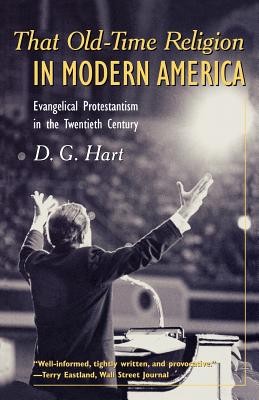
- We will send in 10–14 business days.
- Author: D G Hart
- Publisher: Ivan R. Dee Publisher
- ISBN-10: 1566634598
- ISBN-13: 9781566634595
- Format: 16.7 x 20.9 x 2 cm, minkšti viršeliai
- Language: English
- SAVE -10% with code: EXTRA
Reviews
Description
Many Americans commonly associate evangelical Protestants with the scoldings of the religious right and solicitations of money by televangelists. Whether or not these associations are particularly flattering, it is true that a concern for preserving a moral social order as well as an unrelenting desire to make new converts are traits that have defined evangelicalism throughout American history. In this cogent account, D. G. Hart unpacks evangelicalism's current reputation by tracing its development over the course of the twentieth century. He shows how evangelicals entered the century as full partners in the Protestant denominations and agencies that molded American cultural and intellectual life. Although the fundamentalist controversy of the 1920s marginalized evangelicals in America's largest denominations, their views about the individual, society, and families went virtually unchallenged in American society because of the ongoing dominance of Protestant churches and institutions. After 1960, when the United States entered a period sometimes called "post-Protestant," evangelicals began to assert themselves more aggressively in politics and culture, seeking to preserve a Christian society. These evangelical responses to Protestantism's waning influence in America reveal a curious feature of twentieth-century life: despite its conformity to American ideals, since the 1970s evangelical Protestantism has been perceived as alien to other Americans. Mr. Hart's illuminating study offers an explanation for this change in evangelicalism's fortunes by showing the success and limitations of this popular religious movement.
EXTRA 10 % discount with code: EXTRA
The promotion ends in 22d.07:00:21
The discount code is valid when purchasing from 10 €. Discounts do not stack.
- Author: D G Hart
- Publisher: Ivan R. Dee Publisher
- ISBN-10: 1566634598
- ISBN-13: 9781566634595
- Format: 16.7 x 20.9 x 2 cm, minkšti viršeliai
- Language: English English
Many Americans commonly associate evangelical Protestants with the scoldings of the religious right and solicitations of money by televangelists. Whether or not these associations are particularly flattering, it is true that a concern for preserving a moral social order as well as an unrelenting desire to make new converts are traits that have defined evangelicalism throughout American history. In this cogent account, D. G. Hart unpacks evangelicalism's current reputation by tracing its development over the course of the twentieth century. He shows how evangelicals entered the century as full partners in the Protestant denominations and agencies that molded American cultural and intellectual life. Although the fundamentalist controversy of the 1920s marginalized evangelicals in America's largest denominations, their views about the individual, society, and families went virtually unchallenged in American society because of the ongoing dominance of Protestant churches and institutions. After 1960, when the United States entered a period sometimes called "post-Protestant," evangelicals began to assert themselves more aggressively in politics and culture, seeking to preserve a Christian society. These evangelical responses to Protestantism's waning influence in America reveal a curious feature of twentieth-century life: despite its conformity to American ideals, since the 1970s evangelical Protestantism has been perceived as alien to other Americans. Mr. Hart's illuminating study offers an explanation for this change in evangelicalism's fortunes by showing the success and limitations of this popular religious movement.


Reviews